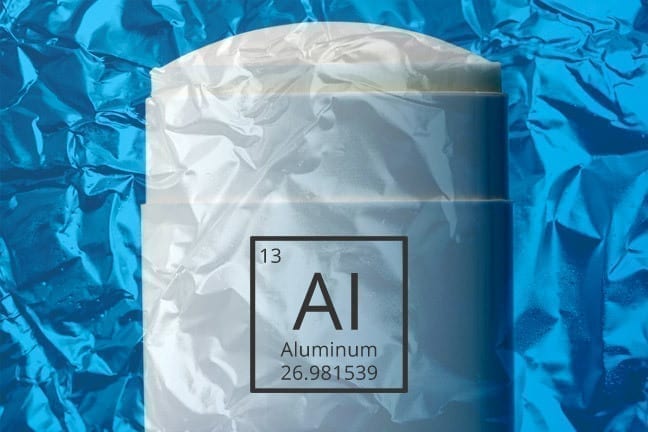A troubling email went viral back in 1999:“I just got information from a health seminar that I would like to share,” the email read. “The leading cause of breast cancer is the use of anti-perspirant. Yes, ANTI-PERSPIRANT.”If you got that email or a similar version, which has been making the rounds for years, you might have had a moment of panic, wondering if the antiperspirant you glide on every day actually causes cancer. Despite the fact that both the American Cancer Society and the National Cancer Institute deny there is any conclusive evidence linking breast cancer with antiperspirant use, concerns continue to linger and circulate online.Let’s Look at the ResearchIn 2003, Kris McGrath, M.D., of the Northwestern University Feinberg School of Medicine published a study that looked at 437 women with breast cancer. He examined their use of antiperspirant/deodorant, their underarm shaving habits, and their age when diagnosed with breast cancer.The women who shaved the most frequently and used antiperspirants/deodorant the most frequently were diagnosed with breast cancer 22 years earlier than the non-users, according to Dr. McGrath. “And the women that started shaving and using antiperspirants before age 16 were diagnosed nine years earlier than the ones that started after age 16,” he says.However, McGrath’s study did not use a control group, and it provided no evidence that underarm shaving or antiperspirants/deodorant actually caused the cancer.A larger study out of the Fred Hutchinson Cancer Research Center and the University of Washington looked at 813 women with breast cancer and 793 women without breast cancer and found no relationship between the women’s underarm hygiene habits and whether or not they had breast cancer. Problematic Parabens?Much of the concern over antiperspirants has centered around parabens—a class of chemicals used to prevent bacteria from growing in cosmetic products.Philippa Darbre, Ph.D., of the University of Reading in the U.K., has been measuring the concentration of parabens in breast tissue removed from women with breast cancer for over a decade. She points to a 2012 study that found parabens in 99 percent of these infected samples. Darbre says parabens can mimic the action of the hormone estrogen. “Estrogen is one of the things that drives the growth of breast tumors,” she points out.However, Darbre has not compared the paraben concentration of infected breast tissues with the amount of paraben in healthy breast tissues. In addition, most antiperspirants currently on the market don’t actually contain parabens.Examining AluminumMore recently, researchers concerned about antiperspirants and cancer have focused on aluminum. It’s the active antiperspirant ingredient that plugs sweat ducts. “It’s a metal ion that seems to be able to mess up how the estrogen receptor functions,” Darbre explains. “It doesn’t affect the growth of the breast cancer cells, but research has shown that it can turn them on. Aluminum may be able to turn normal cells into breast cancer cells.”Past studies have shown higher concentrations of aluminum in biopsied breast tissue than in the regular blood stream. Darbre added aluminum ions to isolated breast cells in the lab and found the aluminum could “turn on” breast cancer cells.Immunologist Robert Golden, Ph.D., president of the environmental consulting firm ToxLogic, takes these laboratory cell culture findings with a grain of salt. “These are very simple suspensions of cells,” he says. “The idea that you would put in the aluminum compound that is the active ingredient in antiperspirant and you see an effect, that’s pretty interesting. But you can see things in cell cultures that will never be replicated in a whole [human]. All of the machinery that detoxifies chemicals is not at work.” Golden adds that cosmetics like antiperspirants are thoroughly tested to ensure their ingredients aren’t absorbed through the skin.Is It Bad to Block Sweat Glands?Even if there’s a lack of evidence that antiperspirant ingredients cause cancer, surely there must be some price to pay for slathering yourself in a product that blocks your sweat glands? According to McGrath, there is. He proports that sweat from the underarm is from apocrine glands, although there are far more eccrine glands than apocrine glands. “The apocrine glands have sex steroids, derivatives of androgen and derivatives of estrogen,” he says. “If you’re blocking them with antiperspirants, where are they going to go? They’re going to stay in the body. The theory is you would get more hormone exposure [with antiperspirant use].” And those hormones, McGrath says, could drive the growth of breast cancer cells.Golden disagrees with McGrath’s theory. “Sweating is a mechanism to cool yourself,” he says. “We don’t get rid of toxins in our sweat. We have a big organ in our body called the liver—it does that. Mostly what comes out through your skin is sodium chloride. Other toxins are not removed from the body through sweating.” Golden also points out that antiperspirants only go on a small portion of your skin’s surface area, while the rest of your sweat glands—from head to toe—are left free to perspire.Don’t Sweat ItAll in all, Darbre and McGrath’s concerns over antiperspirants put them in the minority in the scientific community. The majority of researchers will tell you that if you like antiperspirant, there’s a serious lack of solid evidence to dissuade you from using it.
© YouBeauty 2024




































